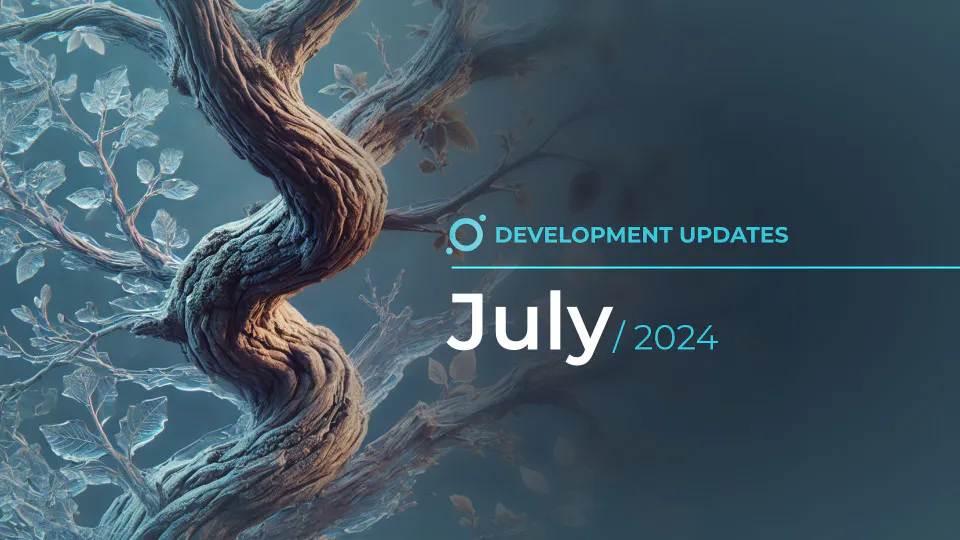Did We Permatop in Smart Contract Network Adoption?
Brought to you by @bitbear
The market value of smart contract networks is a function of three variables: network profits (as a percentage of transaction fees), valuation multiples, and monetary premium(or liquidity condition).
Valuation = Profits * P/E ratio * monetary premium(liquidity condition)

While P/E ratios and monetary premiums are influenced by market sentiment and forces, network profits stem from actual network usage, making them less subjective.
Below is the business model of Ethereum (or any smart contract platforms including roll-ups):

Since 2021, Ethereum has generated approximately $15.8 billion in transaction fees, averaging $4.5 billion annually. Notably, about 70% of these fees originate from DeFi, NFT transactions, and ETH transfers.
To forecast the evolution of smart contract transaction fees, we first need to understand how we currently use the internet:
-
Exchanging information or economic values (mostly through traditional payment rails) with people you have contact in real life (Facebook, Wechat, Line, Kakao etc.)
-
Interacting with strangers for economic or interest-based reasons:
-
Creating or consuming user-generated content like text, images, audio, and video (Instagram, Tiktok etc., Reddit, Twitter etc.)
-
Buying human-made physical or digital items, including online content (Amazon, Taobao, Substack etc.)
-
Creating, consuming, or purchasing AI-created content, products, or services. (ChatGPT)
-
Where Smart Contract Becomes Relevant
Smart contract networks will intersect with several of the aforementioned activities. Yet, to fathom its full scope, we must understand what areas cryptocurrency currently doesn't address:
What crypto doesn’t address
-
Personal social interactions (use case 1 above): in most countries, current solutions are already adequate, providing little incentive for individuals to transition to smart contract networks. However, exceptions exist in regions plagued by strictly censored messages, insufficient payment infrastructure and high inflation.
-
Online commerce involving physical deliveries, like taxis or product delivery services: existing solutions are already adequate.
Where smart contract is (or could be) relevant
While Web 2.0 represents the internet of information, Web 3.0 symbolizes the internet of values. We believe that smart contract platforms will emerge as the primary value exchange mechanism for the internet, especially in:
-
Interest-based communities: Platforms such as Discord, Twitter/X, Reddit, and OnlyFans are illustrative examples. While we're not suggesting that these exact platforms will adopt blockchain, we do anticipate the emergence of smart contract applications with comparable user bases.
-
Gaming: Gamers spend significant amounts on in-game assets, premium content, and virtual goods. By integrating smart contracts into gaming, it's possible to guarantee the verifiable rarity of items, enhance the experience of in-game transactions, and potentially inspire the development of games .
-
Trading and Financial Activities: Smart contracts provide more cost-effective and streamlined transactions than conventional financial services. In 2022, the global financial assets amounted to $610 trillion , with $145.664 trillion in stocks traded on traditional stock exchanges worldwide. Given the superior efficiency and affordability of blockchain, we anticipate it drawing a significant portion of this activity, in addition to being the primary platform for crypto assets.

It's worth highlighting that when these activities occur on-chain, they register as transactions on the blockchain. Consequently, they incur transaction fees for execution. As blockchain technology scales further, the cost of initiating, holding, and trading these assets could become notably lower.
In the following analysis, we examine the monthly active users of current platforms in each category. We then estimate the potential transaction fees users might be willing to pay for various on-chain activities. This provides an insight into the potential yearly transaction fees on smart contract networks.
The TAM(Total Addressable Market) of Smart Contract Networks

Assuming smart contract platforms can garner user bases similar to those of current players and that transaction fees are set as a reasonable percentage of what users spend on present-day internet applications, our moderate estimate suggests that smart contracts could yield $57.5 billion in annual transaction fees. Yet, as our world continues its shift towards digitalization and the onchain user count potentially surpasses that of existing platforms, this figure is likely to increase.

While this model has its limitations, our goal is to offer a framework that guides our understanding of the future smart contract economy. As with any predictive model, it is built upon certain assumptions and approximations. These are influenced by current trends and historical data. However, as the digital landscape evolves, so too will the parameters and variables that determine the trajectory of the smart contract ecosystem.
It's essential to approach this model as a dynamic tool, one that will require adjustments and recalibrations as the industry matures. The pace of technological innovation, regulatory stances, and global economic conditions will all play crucial roles in shaping the future.
Furthermore, while the model sheds light on potential financial outcomes, it's equally important to consider the societal and technological implications of widespread smart contract adoption. How will these contracts redefine trust, intermediation, and value exchange in the digital age? How might they influence power dynamics and democratize access to financial instruments?
In conclusion, this framework serves not just as a predictive tool but also as a catalyst for deeper discussions and critical thinking about the multidimensional impact of smart contracts on our global economy.
Disclaimer: The content of this article solely reflects the author's opinion and does not represent the platform in any capacity. This article is not intended to serve as a reference for making investment decisions.
You may also like
July 2024: Optimizing Balanced Through New Development
In July, ICON advanced its integration efforts and optimized system performance. Key achievements including completion of audits for Stellar, and contracts for Solana. Looking ahead to August we anticipate the deployment of Sui contracts to mainnet.|

MAX Score Airdrop Event Reward Allocation and Claim Guide

Dogs: There will be something for DOGS player on August 14th

